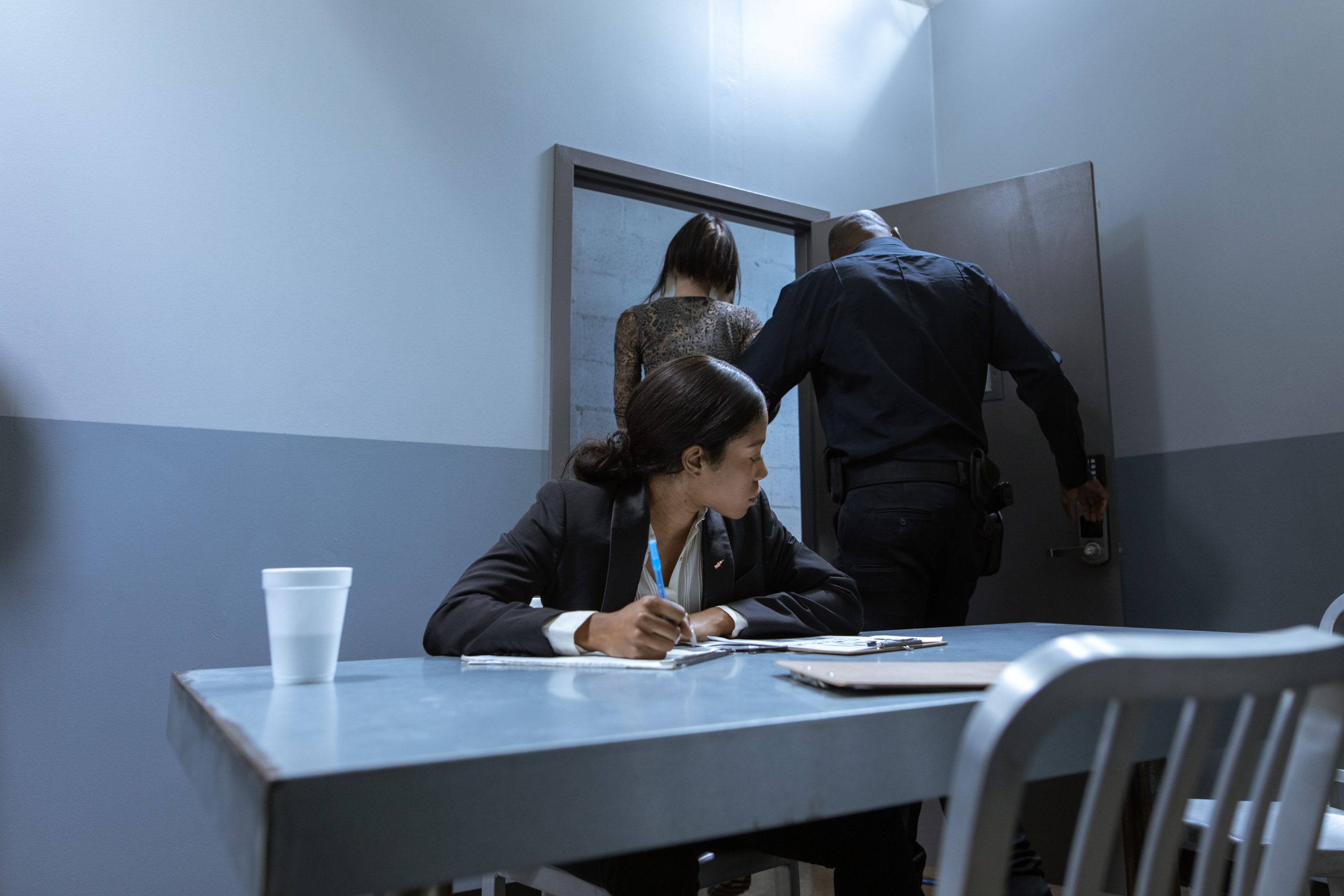In the field of criminal investigation, knowledge and expertise are paramount. As a business owner or head of a company, it is crucial to understand the intricacies of this area of law to protect your organization and its stakeholders. This article aims to provide you with a comprehensive understanding of criminal investigation, highlighting its importance in safeguarding your business interests. By delving into the FAQs surrounding this topic and offering concise answers, we aim to equip you with the necessary knowledge to navigate the complexities of criminal investigations. Ultimately, our goal is to encourage you to take action and call our criminal defense attorney for a consultation, enabling us to provide you with the best possible guidance and support.
What is Criminal Investigation?
Criminal investigation is a crucial field within law enforcement that involves gathering evidence and conducting inquiries to solve crimes. It is the process of uncovering the truth behind criminal activities and identifying those responsible for committing them. Criminal investigations play a fundamental role in maintaining public safety, upholding the law, and seeking justice for victims.
Definition of Criminal Investigation
Criminal investigation can be defined as the systematic and thorough process of gathering, analyzing, and interpreting evidence to determine the facts of a crime and identify the individuals responsible. It involves various techniques, resources, and legal procedures to ensure a fair and comprehensive investigation.
Role of Criminal Investigation
The primary role of criminal investigation is to investigate crimes and gather evidence in order to support the legal process and hold the perpetrators accountable. Investigators are responsible for conducting interviews, collecting evidence, analyzing information, and building a case against the accused. They work closely with other law enforcement agencies, forensic experts, and legal professionals to ensure a thorough investigation and successful prosecution.
Importance of Criminal Investigation
Criminal investigation is of utmost importance for several reasons. Firstly, it helps establish the truth behind criminal activities and brings justice to victims by identifying and apprehending the perpetrators. Secondly, investigations serve as a deterrent for potential criminals, as they demonstrate that law enforcement is dedicated to solving crimes and holding individuals accountable for their actions. Additionally, criminal investigations contribute to the overall safety of communities by preventing future crimes and maintaining public order.
The Stages of Criminal Investigation
Criminal investigations are typically conducted in a structured and systematic manner, involving several stages. Each stage serves a specific purpose and contributes to the overall success of the investigation.
Initial Crime Scene Assessment
The first stage of a criminal investigation is the initial crime scene assessment. This involves securing the area, documenting the scene, and collecting initial evidence. Investigators evaluate the physical surroundings, identify potential witnesses, and determine the scope of the crime.
Collection and Preservation of Evidence
The collection and preservation of evidence are critical in criminal investigations. Investigators meticulously collect and document physical evidence, such as fingerprints, DNA samples, and weapons. They also gather testimonial evidence, including witness statements and interviews with suspects. Strict protocols are followed to ensure the integrity and admissibility of the evidence in court.
Interviewing Witnesses and Suspects
Interviewing witnesses and suspects is an integral part of any criminal investigation. Investigators use various techniques to gather information, elicit crucial details, and identify potential leads. Effective interviewing skills and the ability to analyze verbal and non-verbal cues are essential in extracting valuable information that may contribute to solving the case.
Analyzing and Interpreting Evidence
Once evidence has been collected, investigators analyze and interpret it to uncover vital insights. Forensic experts may examine physical evidence using specialized techniques and technologies. Investigators also assess documentary evidence, such as financial records or communication logs, to establish links between suspects and the crime.
Developing a Suspect List
Based on the evidence and information gathered, investigators develop a list of potential suspects. This list is constantly updated as the investigation progresses and new leads emerge. Investigators utilize their expertise, knowledge of criminal behavior, and profiling techniques to narrow down the list and focus their efforts on the most likely perpetrators.
Conducting Background Checks
Background checks are an important step in criminal investigations. Investigators delve into the personal and criminal history of suspects, looking for patterns or previous offenses that may relate to the current crime. This information helps establish motive, identify potential accomplices, or provide vital details for the case.
Surveillance and Undercover Operations
Surveillance and undercover operations may be employed in certain cases to gather additional evidence or monitor suspects’ activities. Investigators may rely on technological tools, such as video surveillance or tracking devices, to obtain crucial information covertly. Undercover agents may infiltrate criminal networks to gather intelligence and gather evidence.
Obtaining Search Warrants
Search warrants are obtained when there is a need to search a person’s property or premises for evidence. Investigators must follow legal procedures and demonstrate probable cause to a judge in order to obtain a search warrant. This ensures that law enforcement respects individuals’ constitutional rights while conducting searches.
Making Arrests
When sufficient evidence has been gathered, investigators may make arrests. Arrests are made when there is probable cause to believe that an individual has committed a crime. This is a critical moment in the investigation, as the accused is brought into the criminal justice system and the case moves forward towards prosecution.
Preparing the Case for Prosecution
The final stage of a criminal investigation involves preparing the case for prosecution. Investigators work closely with prosecutors to build a strong case by ensuring all evidence is properly documented, witnesses are prepared to testify, and any potential weaknesses in the case are addressed. This collaborative effort sets the stage for a successful outcome in court.

Techniques and Tools Used in Criminal Investigation
Criminal investigations rely on a wide range of techniques and tools to gather evidence, analyze data, and solve crimes. These techniques and tools leverage advancements in science, technology, and investigative methodologies.
Forensic Science
Forensic science plays a crucial role in criminal investigations. It involves the application of scientific principles and techniques to analyze physical evidence collected at crime scenes. Forensic experts use specialized tools and methods to examine fingerprints, DNA, ballistics, and other physical evidence to link it to potential suspects or establish facts related to the crime.
DNA Analysis
DNA analysis has revolutionized criminal investigations. It involves the examination and comparison of DNA samples collected from crime scenes, victims, and potential suspects. DNA analysis can provide definitive evidence of an individual’s presence at a crime scene, link suspects to victims, or exclude innocent individuals from the investigation.
Fingerprint Analysis
Fingerprint analysis is a traditional and highly effective technique in criminal investigations. Investigators collect and compare fingerprints found at crime scenes with those in existing databases to identify potential suspects. Fingerprint analysis relies on the uniqueness and durability of fingerprints, making it a valuable tool in linking individuals to crimes.
Ballistics and Firearms Examination
Ballistics and firearms examination involves the analysis of firearms, projectiles, and bullet casings to establish links between firearms, suspects, and crime scenes. Experts examine firearms for evidence of use in crimes, match bullets or casings to specific firearms, and analyze gunshot residue to support or refute theories surrounding a crime.
Digital Forensics
Digital forensics has become increasingly important in modern criminal investigations due to the prevalence of digital devices and the interconnected nature of crimes. Investigators analyze digital evidence, such as computer files, emails, and internet history, to trace suspects, uncover hidden digital footprints, and identify potential motives or connections.
Surveillance Technologies
Surveillance technologies, such as video cameras, tracking devices, and audio recording equipment, are commonly used in criminal investigations. These tools gather additional evidence, monitor suspect activities, and provide valuable insights into criminal behavior. They can help establish timelines, corroborate witness statements, or provide crucial details for solving a crime.
Polygraph Testing
Polygraph testing, or lie detector tests, are sometimes used in criminal investigations to assess the truthfulness of statements made by witnesses or suspects. While not admissible as evidence in court, polygraph testing can help guide investigations, identify potential deception, and prompt further inquiries.
Undercover Operations
Undercover operations involve law enforcement officers assuming covert identities to infiltrate criminal organizations and gather intelligence. These operations can provide first-hand knowledge of criminal activities, uncover hidden networks or individuals involved in crimes, and gather evidence for prosecution.
Covert Listening Devices
Covert listening devices, also known as bugs or wiretaps, can be used with proper legal authorization to intercept and record conversations as part of a criminal investigation. These devices can provide valuable evidence of conspiracies, plans, or admissions of guilt.
Crime Scene Reconstruction
Crime scene reconstruction involves combining physical evidence, witness statements, and expert analysis to establish a sequence of events and reconstruct the crime. This technique helps investigators understand how the crime unfolded, identify potential motives or actions of suspects, and provide a comprehensive account of the crime for use in court.
Legal Considerations in Criminal Investigation
Criminal investigations operate within a legal framework that sets boundaries and ensures fairness and justice for all parties involved. Investigators must adhere to strict legal considerations throughout their work to protect individuals’ rights and maintain the integrity of the investigation.
Search and Seizure Laws
Search and seizure laws dictate the rules and procedures that investigators must follow when searching property, seizing evidence, or making arrests. These laws protect individuals’ Fourth Amendment rights against unreasonable searches and seizures, ensuring that law enforcement actions are based on probable cause and approved by a judge through a search warrant.
Miranda Rights
Miranda rights are the constitutional rights that must be read to individuals in custody before they are interrogated by law enforcement. These rights include the right to remain silent, the right to an attorney, and the understanding that anything they say can and will be used against them in court. Adhering to Miranda rights ensures that individuals are aware of their rights and can exercise them during the investigation process.
Interrogation Techniques
Interrogation techniques must be conducted within legal boundaries to ensure fairness and avoid coercion or false confessions. Investigators must employ ethical and legal tactics to gather information, such as building rapport with suspects, using non-threatening interview techniques, and refraining from using excessive pressure or deception.
Chain of Custody
Chain of custody refers to the documentation and tracking of physical evidence from the time it is collected until it is presented in court. Maintaining an unbroken chain of custody is crucial to the admissibility of evidence, ensuring that it has not been tampered with or compromised during the investigation process. Properly documenting the movement and handling of evidence preserves its integrity and reliability.
Confidential Informants
Confidential informants, also known as CI’s, play a role in criminal investigations by providing information or cooperating with law enforcement. Investigators must carefully handle the use of informants, ensuring their safety and maintaining their confidentiality. Legal considerations include properly documenting informant interactions, avoiding entrapment, and ensuring compliance with laws protecting confidential informants.
Legal Use of Surveillance Technologies
The use of surveillance technologies must adhere to legal guidelines and obtain proper authorization. Investigating agencies must follow laws regarding privacy, wiretapping, and electronic surveillance to ensure the admissibility and legality of the evidence gathered. Proper documentation and adherence to legal procedures protect the rights of individuals while allowing investigators to gather essential evidence.
Rules of Evidence
The rules of evidence govern what types of evidence can be presented in court and how it can be introduced. Investigators must adhere to these rules when collecting and presenting evidence, ensuring that it is relevant, reliable, and legally obtained. Following the rules of evidence guarantees a fair and just trial for all parties involved.
Witness Interviewing Guidelines
When conducting witness interviews, investigators must follow guidelines that protect witnesses’ rights and ensure accurate and reliable information. They must use appropriate interviewing techniques, avoid leading or suggestive questions, and establish rapport with witnesses to encourage open and honest communication. Properly conducted interviews contribute to the strength and credibility of the evidence gathered.
Rights of the Accused
Investigators must respect the rights of individuals accused of crimes throughout the investigation process. These rights include the presumption of innocence, the right to legal representation, the right to remain silent, and protection against self-incrimination. Investigators must ensure that individuals’ constitutional rights are upheld while conducting their inquiries.
Burden of Proof
The burden of proof lies with the prosecution in criminal investigations. Investigators must gather sufficient evidence to establish guilt beyond a reasonable doubt. Adhering to legal considerations and principles ensures that the evidence collected meets the high standard required for conviction and upholds the integrity of the justice system.

Challenges and Ethical Issues in Criminal Investigation
Criminal investigations are not without challenges and ethical considerations. Investigators must navigate complex situations, adhere to legal and ethical guidelines, and address the dilemmas they may encounter during their work.
Preserving Constitutional Rights
One significant challenge in criminal investigations is balancing the need to gather evidence with protecting individuals’ constitutional rights. Investigators must be vigilant in ensuring that evidence is obtained legally and that individuals’ rights, such as due process and protection against self-incrimination, are upheld throughout the investigation.
Balancing Public Safety and Individual Liberties
Criminal investigations must strike a delicate balance between ensuring public safety and respecting individual liberties. While protecting the community from potential harm is a priority, investigators must refrain from violating individuals’ rights or resorting to unethical practices. Maintaining this balance is crucial to maintaining public trust in the criminal justice system.
Dealing with False Confessions
False confessions can occur during criminal investigations and pose significant challenges. Investigators must be able to distinguish between genuine and coerced confessions and ensure that the evidence supports the confession. Ethical guidelines require investigators to employ rigorous interview techniques, avoid coercion, and consider other corroborating evidence before relying solely on a confession.
Handling Confidential Informants
Working with confidential informants presents numerous ethical considerations for investigators. They must ensure the safety and anonymity of informants while gathering reliable and accurate information. Investigators must avoid using informants improperly or coercing them into providing false or unreliable information.
Addressing Racial Bias
Racial bias can be a challenge in criminal investigations. Investigators must be aware of their biases and ensure that their actions are not influenced by race or ethnicity. Fair treatment, equal opportunities, and objective decision-making are essential in addressing and avoiding racial bias in criminal investigations.
Maintaining Investigative Integrity
Maintaining investigative integrity is crucial to the success and credibility of criminal investigations. Investigators must adhere to ethical principles, avoid conflicts of interest, and ensure that their actions are guided by professionalism, honesty, and transparency. Upholding investigative integrity instills public confidence in law enforcement agencies.
Avoiding Entrapment
Entrapment occurs when law enforcement induces individuals to commit crimes they would not otherwise have committed. Investigators must be conscious of this possibility and ensure that their actions do not cross the line into entrapment. Adhering to legal guidelines and avoiding tactics that unduly pressure or entice individuals is essential in maintaining ethical standards.
Respecting Privacy Rights
Investigators must respect individuals’ privacy rights when conducting their inquiries. This includes following legal procedures for obtaining search warrants, avoiding unnecessary invasions of privacy, and ensuring that electronic surveillance is conducted within the bounds of the law. Respecting privacy rights maintains trust in the investigative process and the criminal justice system.
Considering the Impact of Investigations on Innocent Individuals
Criminal investigations can have a significant impact on innocent individuals who may be targeted or implicated in a crime. Investigators must approach their work with caution and ensure that their actions do not result in harm or unnecessary distress to innocent parties. Safeguarding the rights and well-being of all individuals involved is paramount.
Ensuring Proper Use of Force
In certain situations, law enforcement officers may need to use force to protect themselves or others during the course of a criminal investigation. It is essential that investigators adhere to legal guidelines and use force only when necessary and proportionate to the situation. Properly trained and informed investigators understand the importance of de-escalation and minimizing the use of force whenever possible.
Roles and Responsibilities in Criminal Investigation
Criminal investigations involve various individuals and entities, each with specific roles and responsibilities that contribute to the overall investigative process and prosecution of crimes.
Law Enforcement Agencies
Law enforcement agencies, such as police departments, sheriff’s offices, or federal agencies, play a critical role in criminal investigations. They oversee and coordinate investigations, provide resources and personnel, and collaborate with other agencies to ensure a comprehensive and effective investigation.
Detectives and Investigators
Detectives and investigators are responsible for conducting the detailed and specialized work of criminal investigations. They gather evidence, interview witnesses and suspects, analyze information, and build a case against the accused. Detectives employ specialized techniques and expertise to solve crimes and assist in the prosecution of offenders.
Crime Scene Technicians
Crime scene technicians, also known as forensic technicians, play a crucial role in collecting and analyzing physical evidence at crime scenes. They meticulously document and process the scene, collect fingerprints, DNA samples, and other trace evidence, and ensure the proper preservation and packaging of the evidence for further analysis.
Forensic Experts
Forensic experts provide specialized knowledge and expertise in various fields to support criminal investigations. These experts include forensic scientists, pathologists, ballistics experts, fingerprint analysts, DNA analysts, and digital forensic analysts. Their contributions include analyzing evidence, providing expert testimony, and providing crucial insights into the scientific aspects of the crime.
Prosecutors
Prosecutors play a critical role in criminal investigations by assessing the evidence, determining if charges should be filed, and representing the state or government in court. They work closely with investigators, review the evidence gathered, and make informed decisions on whether to pursue prosecutions and what charges to bring.
Victim Advocates
Victim advocates are professionals who provide support, information, and assistance to crime victims throughout the investigative process. They help victims understand their rights, navigate the legal system, and access necessary resources and support services. Victim advocates ensure that the needs and rights of the victims are considered throughout the investigation and prosecution.
Defense Attorneys
Defense attorneys represent individuals accused of crimes and play a crucial role in the criminal investigation process. They ensure that their clients’ rights are protected, challenge the evidence presented, and advocate for a fair and just legal process. Defense attorneys work closely with investigators to gather evidence, interview witnesses, and build a defense strategy.
Expert Witnesses
Expert witnesses provide specialized knowledge and testify in court on matters relevant to the criminal investigation. They may include forensic experts, medical professionals, psychologists, or other experts in fields related to the case. Expert witnesses provide objective, professional opinions to help the jury understand complex issues and evaluate evidence.
Jury Members
Jury members serve a vital role in the criminal justice system by listening to the evidence presented during a trial and deciding the guilt or innocence of the accused. Jury members use their judgment and assessment of the evidence to determine whether the prosecution has met the burden of proof beyond a reasonable doubt.
Legal Professionals
Legal professionals, including judges and magistrates, oversee and ensure the proper application of the law in criminal investigations. They interpret legal statutes, review evidence, adjudicate cases, and provide guidance on procedural issues. Judges play a critical role in ensuring a fair trial and upholding the principles of justice.
Common Types of Criminal Investigations
Criminal investigations cover a wide range of crimes and offenses. Investigators specialize in various areas to effectively address the specific challenges posed by different types of criminal activity.
Homicide Investigations
Homicide investigations are conducted to uncover the truth behind a person’s death and identify the responsible parties. Investigators meticulously examine crime scenes, collect evidence, interview witnesses, and use specialized forensic techniques to build a case against the suspect.
Fraud and Financial Investigations
Fraud and financial investigations focus on uncovering fraudulent activities, such as embezzlement, identity theft, or corporate fraud. Investigators analyze financial records, search for discrepancies, trace money trails, and interview individuals involved to establish fraudulent intent and gather evidence.
Cybercrime Investigations
Cybercrime investigations involve crimes committed using computers, networks, or the internet. Investigators with specialized knowledge in digital forensics and cybercrime techniques track down cybercriminals, gather digital evidence, and work with international partners to apprehend offenders and protect individuals and organizations from cyber threats.
Drug and Narcotics Investigations
Drug and narcotics investigations aim to disrupt and dismantle illegal drug operations. Investigators gather intelligence, conduct surveillance, make undercover purchases, and work with informants to identify drug suppliers, distributors, and traffickers. These investigations help combat the drug trade and reduce the societal impact of drug abuse.
White Collar Crime Investigations
White collar crime investigations focus on non-violent offenses committed in business or professional settings. Investigators scrutinize financial transactions, corporate records, and business practices to uncover fraud, insider trading, money laundering, or other illicit activities conducted by individuals in positions of trust.
Sexual Assault Investigations
Sexual assault investigations are conducted to gather evidence and hold perpetrators accountable for committing sexual offenses. These investigations require sensitivity and specialized training to interview victims, collect forensic evidence, and build strong cases against the accused.
Robbery and Burglary Investigations
Robbery and burglary investigations aim to identify and apprehend individuals involved in theft-related offenses. Investigators examine crime scenes for evidence, track stolen property, and analyze patterns to create profiles of potential suspects and prevent future crimes.
Gang and Organized Crime Investigations
Gang and organized crime investigations focus on dismantling criminal organizations engaged in illegal activities. Investigators collect intelligence, monitor activities, and infiltrate networks to disrupt criminal operations and gather evidence to prosecute key members of these organizations.
Domestic Violence Investigations
Domestic violence investigations involve addressing crimes committed within intimate relationships or households. Investigators gather evidence, interview victims and witnesses, and work with victim advocates to build cases against perpetrators and provide support to victims.
Child Abuse and Neglect Investigations
Child abuse and neglect investigations concentrate on protecting the welfare of children and holding accountable those responsible for their mistreatment. Investigators work alongside child protective services agencies, medical professionals, and psychologists to gather evidence, interview witnesses, and ensure the safety of children.
Collaboration in Criminal Investigation
Criminal investigations often require collaboration and cooperation among multiple agencies, organizations, and individuals. These partnerships maximize resources, expertise, and information sharing to ensure the success of investigations.
Interagency Cooperation
Interagency cooperation involves collaboration between different law enforcement agencies, such as federal, state, and local, to address complex or multi-jurisdictional crimes. Cooperation allows pooling resources, sharing intelligence, and coordinating efforts to achieve efficient and effective investigations.
Task Forces
Task forces are specialized units created to address specific types of crimes or recurring issues. They bring together investigators, experts, and resources from different agencies, such as law enforcement, prosecutors’ offices, and regulatory bodies, to improve investigative outcomes and increase the likelihood of successful prosecutions.
International Collaboration
International collaboration in criminal investigations is essential, especially in cases involving cross-border crimes. Investigators work with their counterparts in other countries to share information, coordinate efforts, and extradite offenders. These partnerships are crucial in addressing global threats, such as terrorism, cybercrime, or human trafficking.
Fusion Centers
Fusion centers are centralized hubs that facilitate the sharing of information and intelligence between various agencies involved in criminal investigations. These centers promote collaboration, analyze data, and provide comprehensive situational awareness to support investigations and enhance public safety.
Coordinating with Prosecutors
Coordinating with prosecutors is vital for successful criminal investigations. Investigators work closely with prosecutors to gather evidence, consult on legal matters, and ensure that investigative efforts align with the requirements for successful prosecution. This collaboration helps build strong cases and enhances the chances of conviction.
Working with Forensic Experts
Forensic experts play a crucial role in criminal investigations and collaborate closely with investigators. Investigators consult with forensic experts to analyze evidence, gain insights into the scientific aspects of the case, and provide expert testimony in court. Collaboration with forensic experts enhances the quality and credibility of the evidence presented.
Utilizing Specialized Units and Expertise
Criminal investigations often require specialized skills and expertise to address unique challenges. Investigators may call upon specialized units within their agency, such as canine units, crime scene reconstruction teams, or computer forensic units, to assist with specific aspects of an investigation. Utilizing specialized units enhances the efficiency and effectiveness of investigations.
Engaging the Community
Engaging the community is crucial in criminal investigations, as community members often possess valuable information or witness criminal activities. Investigators foster relationships with community members, establish trust, and encourage cooperation through community outreach programs, public awareness campaigns, and community policing initiatives.
Partnering with Private Investigators
In some cases, investigators may collaborate with private investigators to gather additional information or expertise. Private investigators bring specialized knowledge and resources that can complement law enforcement efforts, particularly in complex or sensitive cases.
Sharing Information and Intelligence
Information sharing and intelligence sharing are key components of successful criminal investigations. Investigators exchange information with other agencies, both locally and nationwide, to identify patterns, criminal networks, or potential leads. Sharing information enhances the overall effectiveness and efficiency of investigations.

Recent Developments in Criminal Investigation
Advancements in technology, changes in criminal behavior, and developments in investigative methodologies continually shape the field of criminal investigation. Staying up-to-date with these recent developments is crucial for investigators to effectively adapt to new challenges and improve their investigative techniques.
Advancement in Forensic Technologies
Forensic technologies continue to advance, allowing investigators to extract more information from physical evidence. Innovations in fingerprint analysis, DNA profiling, ballistics, and digital forensics have significantly improved investigators’ ability to solve crimes and present compelling evidence in court.
Digital and Cybercrime Trends
As technology evolves, so do the methods employed by cybercriminals. Investigators must stay abreast of digital and cybercrime trends, such as phishing attacks, ransomware, or cryptocurrency-related offenses. Understanding these trends and the associated investigative techniques enables investigators to effectively combat cybercrime.
Use of Artificial Intelligence
Artificial intelligence (AI) is increasingly being utilized in criminal investigations. AI-powered tools analyze large amounts of data, identify patterns, and support investigators in making informed decisions. AI technologies assist in tasks such as facial recognition, voice analysis, language processing, and trend prediction, enhancing the efficiency and effectiveness of investigations.
Impact of Social Media
Social media has become a valuable source of information for criminal investigations. Investigators leverage social media platforms to gather evidence, identify potential suspects or witnesses, and uncover connections between individuals. Understanding the impact and implications of social media on investigations is crucial in the digital age.
Big Data Analytics in Investigations
The proliferation of data has necessitated the use of big data analytics in criminal investigations. Investigators analyze large volumes of data collected from various sources, including financial records, communication logs, and surveillance footage, to identify patterns, establish links, and predict criminal behavior.
Advances in Surveillance Technologies
Surveillance technologies have advanced significantly, enabling investigators to gather critical evidence from various sources. High-definition cameras, drones, facial recognition technology, and advanced audio surveillance tools enhance investigators’ ability to monitor suspects, gather intelligence, and establish facts.
Encryption and Privacy Challenges
Encryption presents challenges for criminal investigations, as strong encryption can prevent investigators from accessing digital devices or communications. Balancing individuals’ privacy rights with the needs of effective investigations is an ongoing challenge as cryptographic technologies evolve.
Emerging Investigative Techniques
Innovative investigative techniques continue to emerge, providing investigators with new tools and approaches. Examples include geolocation tracking, geospatial analysis, crime mapping, and predictive policing. These techniques aim to improve the speed and accuracy of investigations.
Changing Legal Landscape
The legal landscape surrounding criminal investigations undergoes continuous change as new laws and court rulings shape investigative practices. Investigators must stay updated on changes in legislation and legal precedents to ensure compliance and adapt their investigative techniques accordingly.
Importance of Continuing Education
Continuing education is crucial for investigators to stay abreast of developments in the field and maintain their skills and knowledge. Training programs, seminars, and workshops provide opportunities for investigators to enhance their expertise, learn about emerging investigative techniques, and share best practices with colleagues.
Frequently Asked Questions about Criminal Investigation
What is the role of a criminal investigator?
The role of a criminal investigator is to gather evidence, interview witnesses and suspects, analyze information, and build a case against individuals accused of crimes. Investigators work diligently to uncover the truth, ensure justice for victims, and present compelling evidence in court to support the prosecution of offenders.
What are the main objectives of a criminal investigation?
The main objectives of a criminal investigation are to identify and apprehend individuals responsible for committing crimes, gather evidence that establishes their guilt, and support the prosecution in court. Additionally, investigations aim to maintain public safety, prevent future crimes, and provide closure and justice for victims and their families.
How long does a criminal investigation typically last?
The duration of a criminal investigation varies depending on the complexity of the case, the resources available, and the cooperation of witnesses and suspects. Some investigations may be resolved relatively quickly, while others may extend for weeks, months, or even years. The aim is to conduct a thorough investigation and ensure that justice is served, rather than rushing to a conclusion.
Can a criminal investigation be dropped?
In some cases, criminal investigations may be dropped due to insufficient evidence, lack of cooperation from witnesses or victims, or discrepancies in the facts of the case. Prosecutors have the discretion to drop charges if they determine that a successful prosecution is unlikely or not in the interest of justice. However, the decision to drop an investigation is based on careful evaluation of the case’s merits and the potential impact on the community.
What rights do individuals have during a criminal investigation?
During a criminal investigation, individuals have certain rights that protect them from undue intrusion and ensure fair treatment. These rights include the right to remain silent, the right to an attorney, protection against self-incrimination, and protection against unreasonable searches and seizures. It is essential for individuals to understand and exercise these rights during the investigation process.
How can I support the criminal investigation process?
You can support the criminal investigation process by reporting any pertinent information or providing testimony if you witnessed or have information about a crime. Cooperating with law enforcement and providing accurate and truthful information can assist investigators in their efforts to uncover the truth and hold perpetrators accountable. Collaboration from the community strengthens the investigative process and enhances public safety.
What should I do if I am a witness in a criminal investigation?
If you are a witness in a criminal investigation, it is important to cooperate fully with law enforcement. Provide accurate and detailed information about what you observed or know about the crime. Be prepared to testify if required and follow any instructions given by investigators or prosecutors. It is essential to be truthful and honest when providing information to support a fair and just investigation.
Can I hire a private investigator to assist in a criminal investigation?
In certain circumstances, you can hire a private investigator to assist with aspects of a criminal investigation. However, it is important to note that private investigators do not have the same authority as law enforcement officers and cannot arrest or charge individuals with crimes. Private investigators can provide expertise, conduct interviews, gather evidence, and offer support to your legal defense team but should not be relied upon as a substitute for the official investigation conducted by law enforcement.
What is the difference between a criminal investigation and a criminal trial?
A criminal investigation is the process of uncovering evidence, gathering information, and identifying potential suspects in a criminal case. The objective is to build a case against the accused and support the prosecution in court. A criminal trial, on the other hand, is the legal proceeding in which the accused individual is formally charged and has the opportunity to present a defense. A trial involves the presentation of evidence, examination of witnesses, and a determination of guilt or innocence by a judge or jury.
What happens if evidence is mishandled or tampered with during a criminal investigation?
If evidence is mishandled or tampered with during a criminal investigation, it can have serious repercussions for the case. Mishandling or tampering with evidence can compromise its admissibility in court and undermine the credibility of the investigation. It is essential for investigators to adhere to strict protocols, maintain a clear chain of custody, and document their handling of evidence to ensure its integrity and validity in court proceedings.









